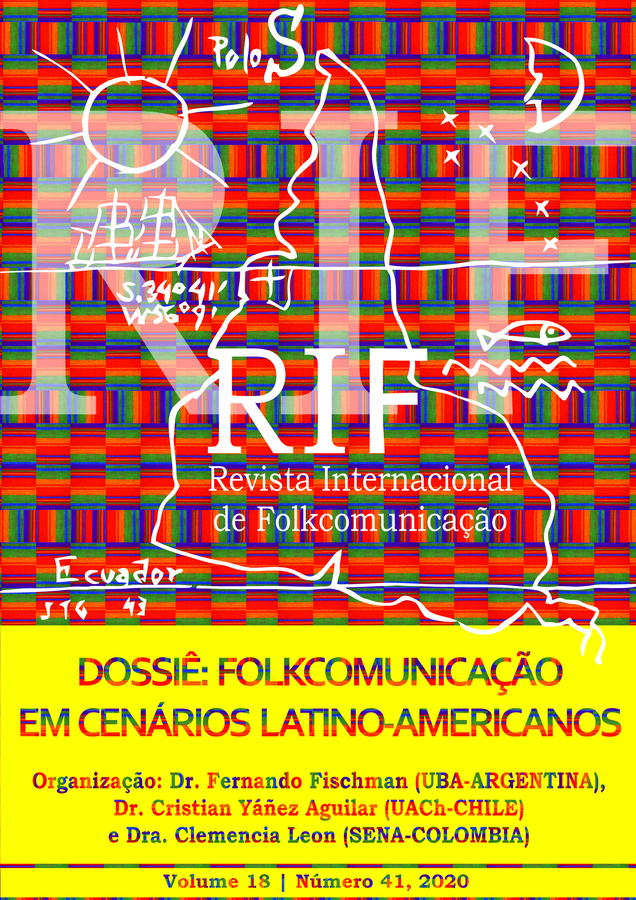From the caves to streaming: The grotesc success and music mediatization
DOI:
https://doi.org/10.5212/RIF.v.18.i41.0008Abstract
The Covid-19 pandemic scenario stimulated the exposure of musicians in musical lives. Artists who were already present on streaming platforms and on digital social media sought space in order to overcome the requirement of social distance. The article observes the intrinsic relationship between the field of music and the processes of mediatization and proposes to examine how the insertion of regional music from Rio Grande do Sul occurs in some of the broadcasts with the highest audience in the period in streaming. It specifically analyzes the phenomenon of a song recognized as belonging to a specific identity, based on the relationship between lyrics, sounds and rhythm, and its dissemination through memes for deterritorialized audiences. It appears that, from the language of mockery in themes already dealt with by the mythical narrative, the gallant musical aspect assumed in the song expresses contempt for cultured and critical forms of musical expression, and conquers via media both regional audiences and national regionalist niches. Its success expresses the cathartic search for overcoming social asphyxia determined by the context of the pandemic. Mediatization; Gaúcha Pop Music; Pop Music; Grotesque.
Downloads
Downloads
Additional Files
Published
How to Cite
Issue
Section
License

Este obra está licenciado com uma Licença Creative Commons Atribuição 4.0 Internacional.
Os autores são responsáveis, em qualquer que seja o formato do texto, pelas opiniões expressas ou indiretas presentes em seus respectivos trabalhos, não endossáveis pelo Conselho Editorial e pelos editores da Revista, bem como pela autenticidade do trabalho. Ao publicar trabalhos na Revista Internacional de Folkcomunicação, os autores cedem automaticamente os direitos autorais à publicação para veiculação das produções acadêmicas, sem ônus para a Revista. Os autores detêm os direitos autorais do texto para o caso de publicações posteriores e concedem à Revista Internacional de Folkcomunicação o direito de primeira publicação, com o trabalho simultaneamente licenciado sob a Creative Commons Attribution License, que permite o compartilhamento do trabalho com reconhecimento da autoria e publicação inicial nesta Revista. Por serem publicados em revista de acesso livre, os artigos são de uso gratuito, com atribuições próprias, em atividades educacionais e não-comerciais, sendo permitida a publicação simultânea em repositórios institucionais.































